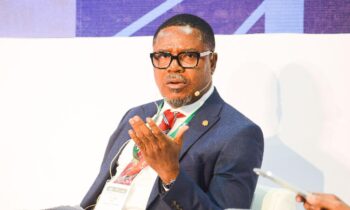The Transmission Company of Nigeria (TCN) says the national grid, which collapsed earlier on Monday, has been restored.
“The restoration of the affected part of the grid commenced immediately at 11.55 am with Osogbo/Ihovbor back to the grid followed by Jebba/Osogbo, Kainji/Jebba, Benin/Onisha, Shiroro/Kaduna, Shiroro/Katampe, and Alaoji/Ikot-Ekpene,” it said in a statement on Monday.
“Others are Lokoja/Gwagwalada, Odukpani/Ikot Ekpene, Benin/Omotosho, Oke-Aro/Ikeja west, Egbin/Oke-Aro and Kaduna/Kano.”
While explaining the cause of the incident, the TCN said it was due to “a sudden drop in system frequency, which created system instability”.
“The National Control Centre (NCC) said a full-scale investigation is being conducted to establish and ascertain the cause of the partial disturbance as this unwholesome event has resulted in aggregated generation loss,” TCN’s General Manager, Public Affairs, Ndidi Mbah, said in the statement.
Earlier in the day, electricity distribution companies had informed their customers of the disruption of power, citing the collapse of the national grid. They did not state the cause of the outage.
Ikeja Electric said the national grid collapsed at 10:50 am on Monday, noting that “this has affected the transmission stations within our network and resulted in the loss of power supply to our customers”.
The DISCOs equally apologised to them, saying work was being done to fix the issue.
“We are working with our TCN partners to restore supply as soon as possible,” Eko Electricity Distribution Company also said. “We apologise for the inconvenience.”
Monday’s incident is the latest in a series of blackouts in the country owing to the incessant collapse of the national grid.
The national grid had collapsed eight times this year with the last one coming in July. It equally collapsed in June, March, and April 2022.
With the national electricity grid collapsed on Monday many parts of the country were left without power, electricity distribution companies said.
Nigeria has installed capacity of 12,500 megawatts but produces about a quarter of that, leaving many Nigerians and businesses reliant on diesel-powered generators. Diesel prices have soared since the start of the year.
The nation’s sclerotic power grid, and its precarious energy supply,are often cited by businesses as a key issue hindering growth in Africa’s most populous country.
Olusola Bello





